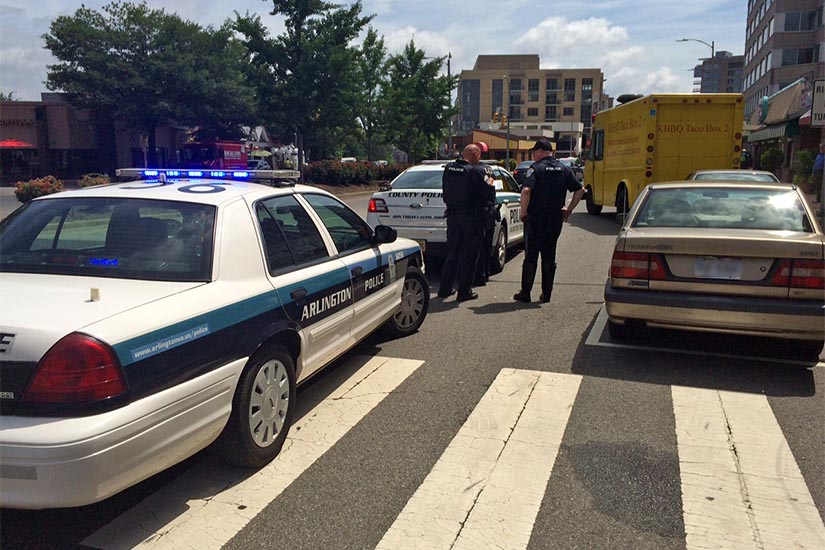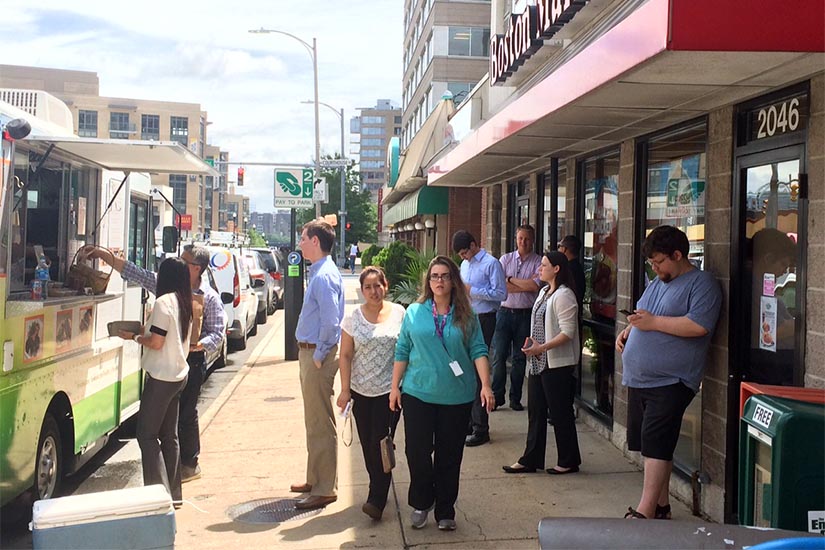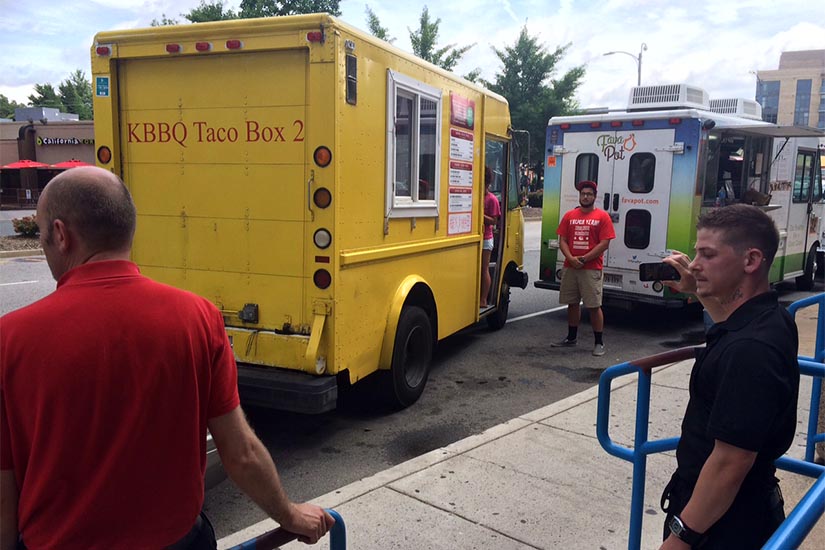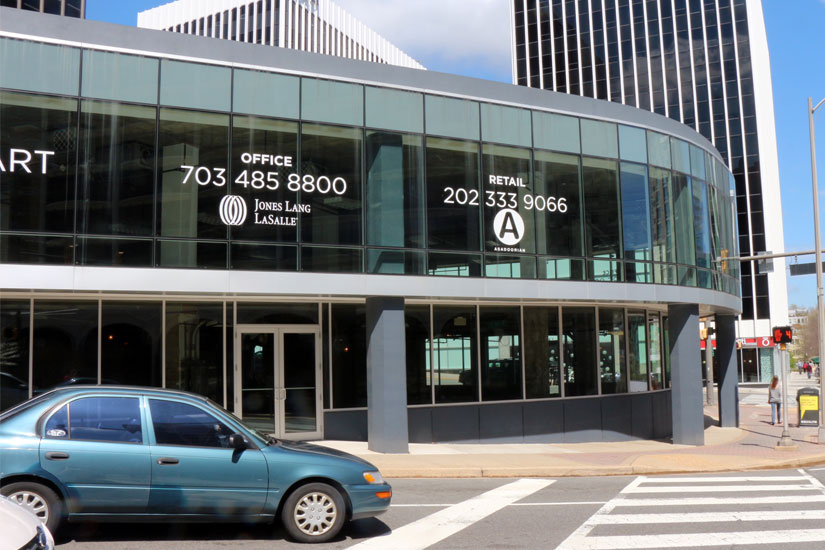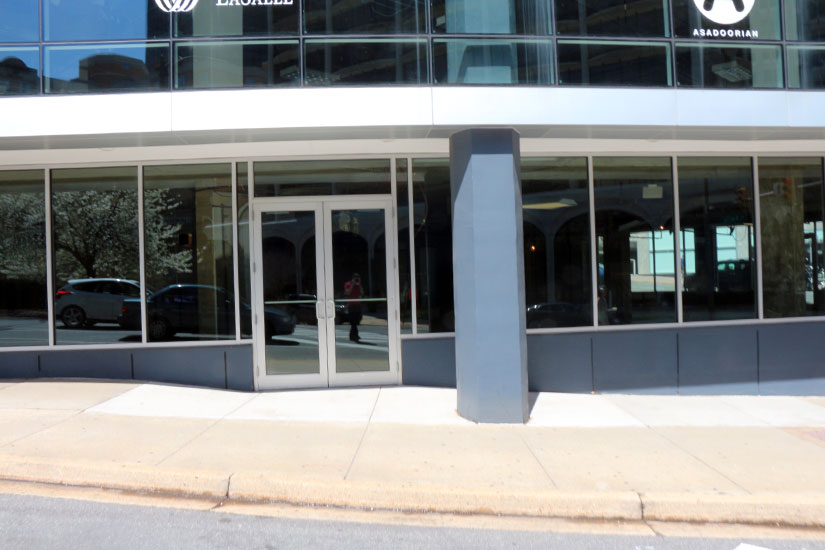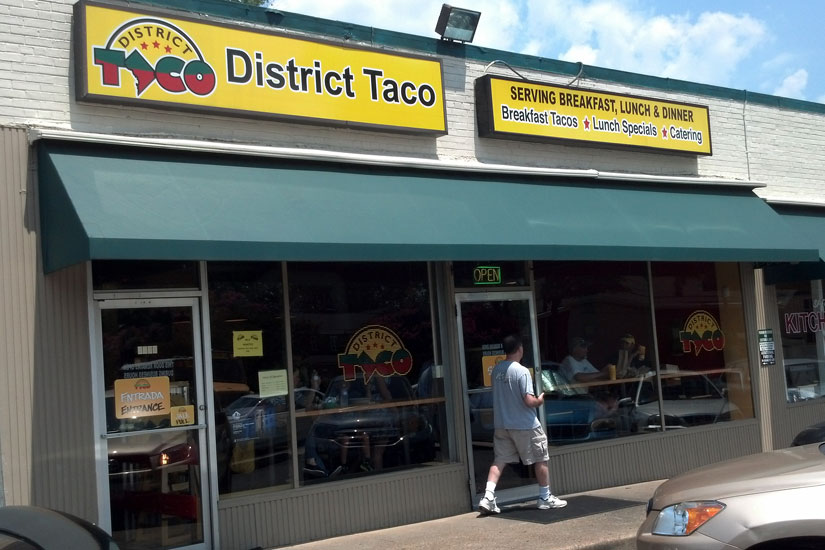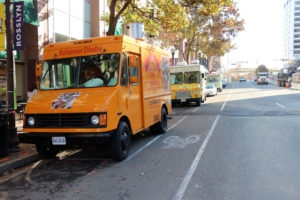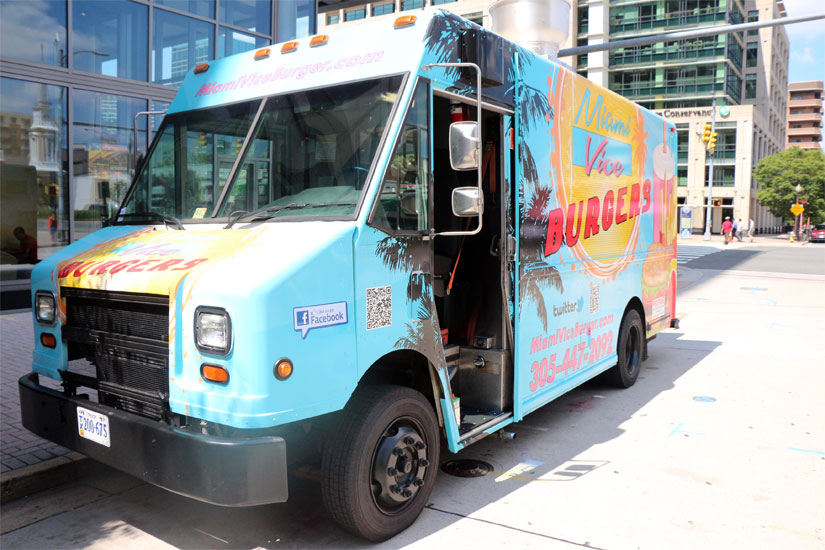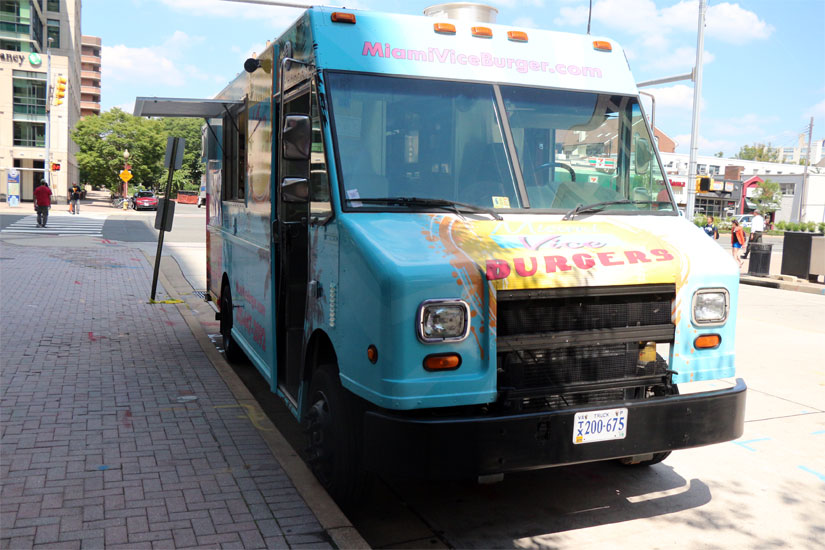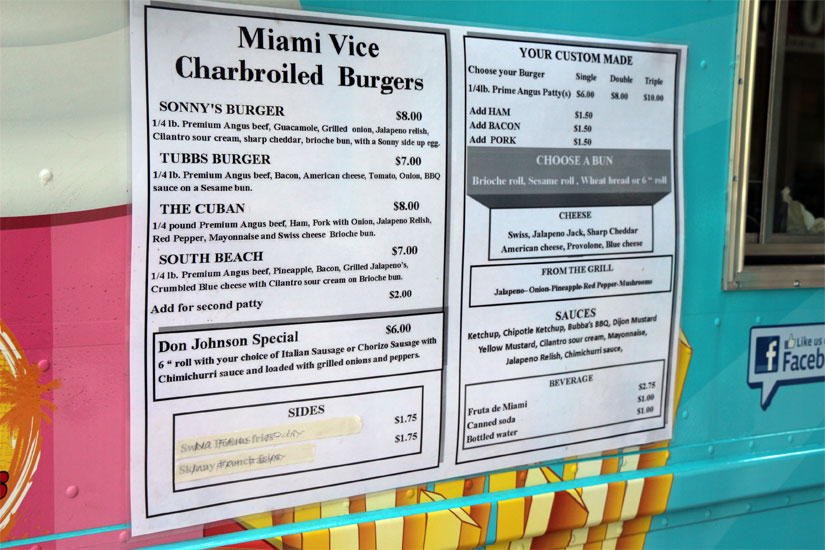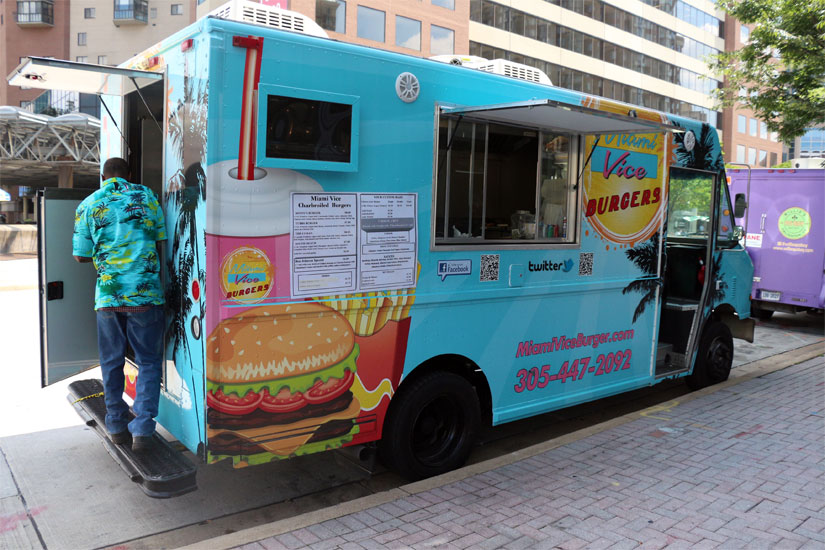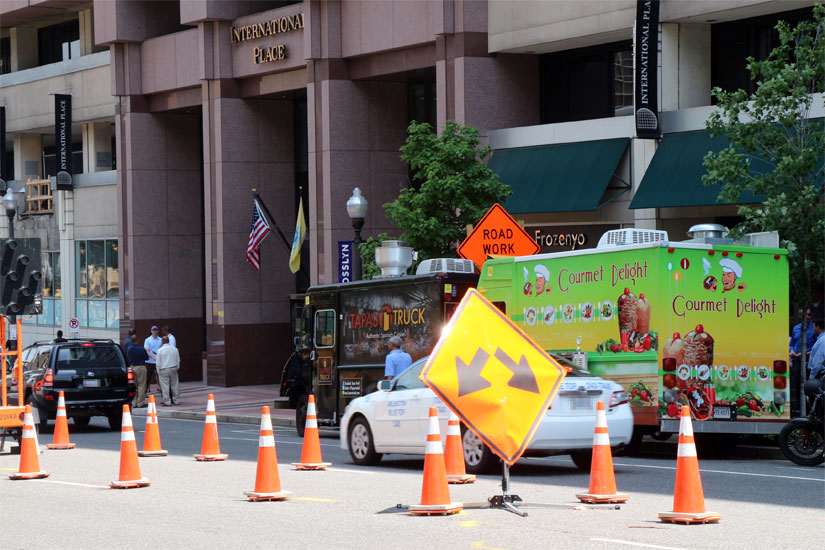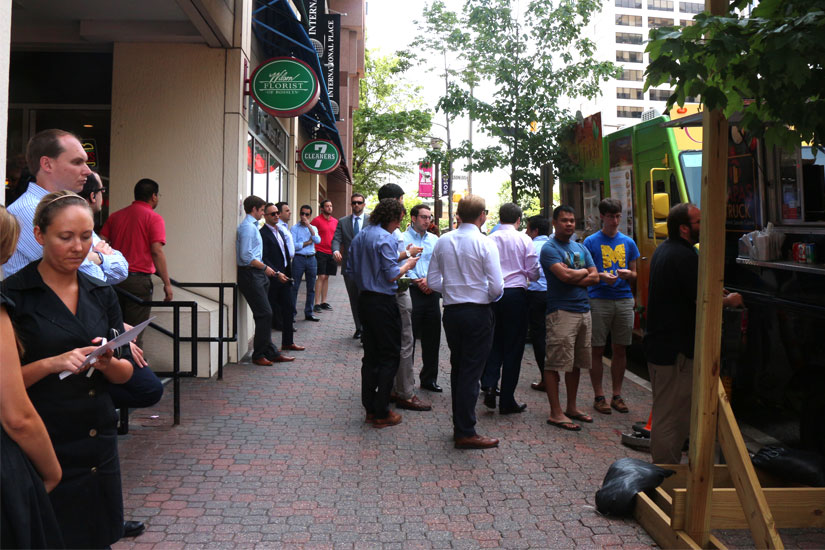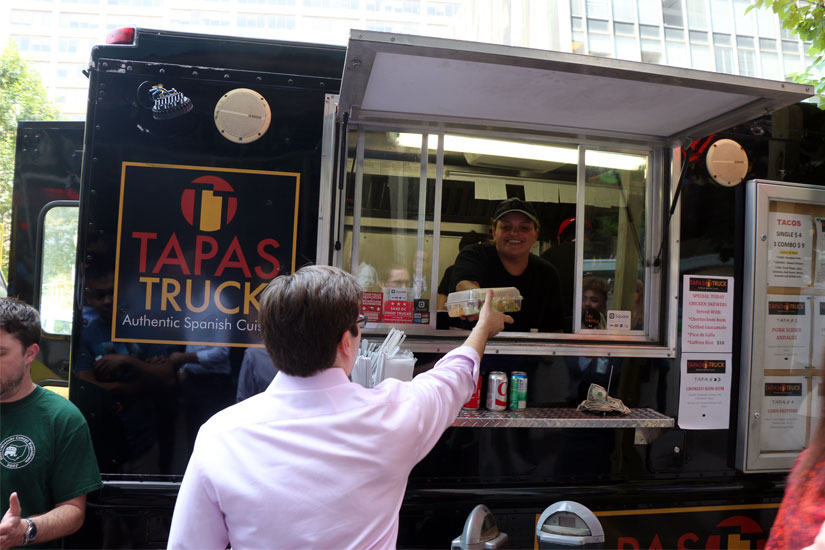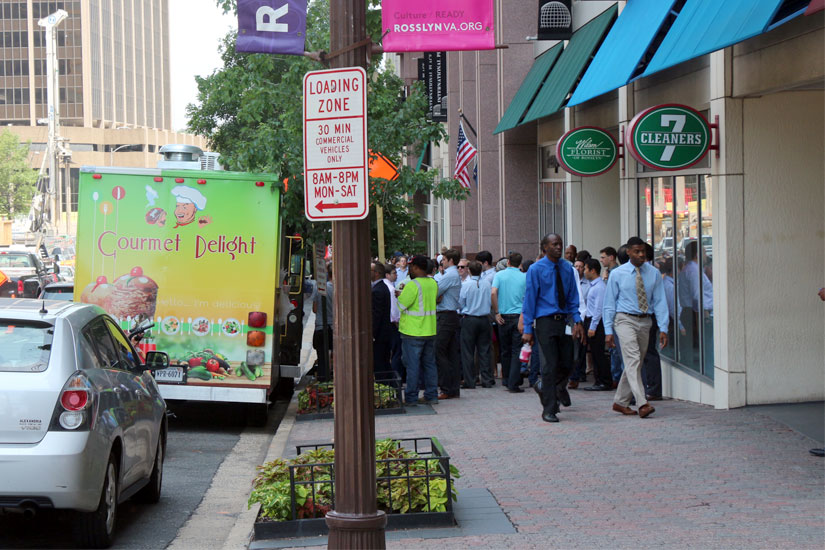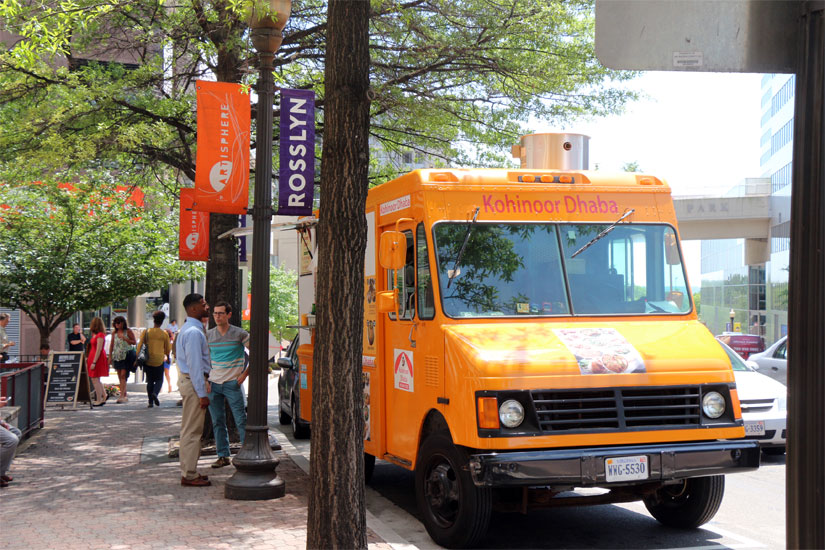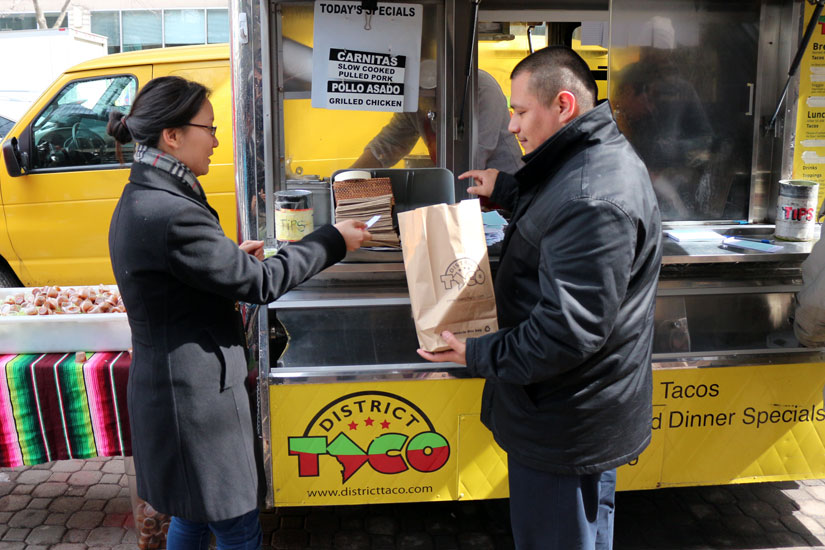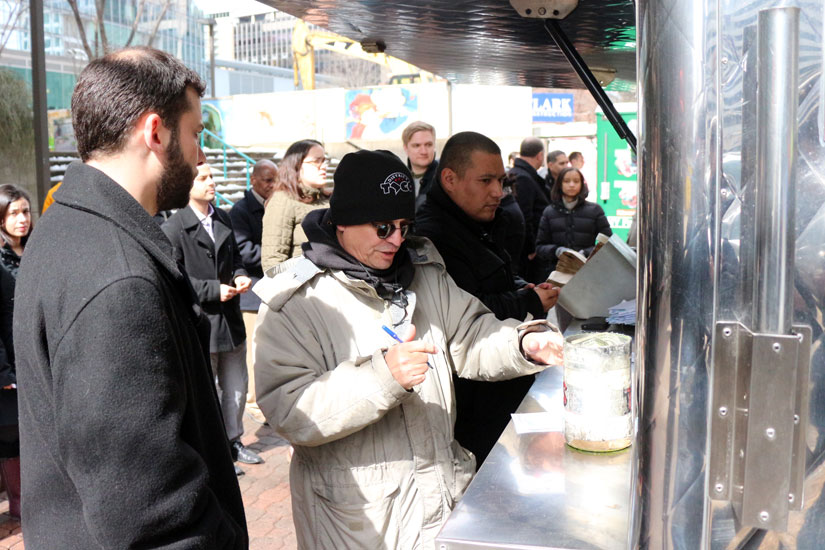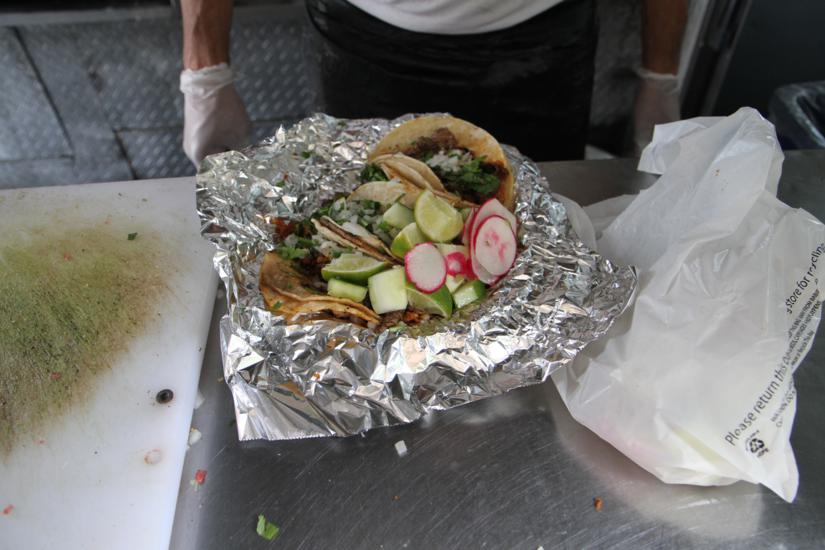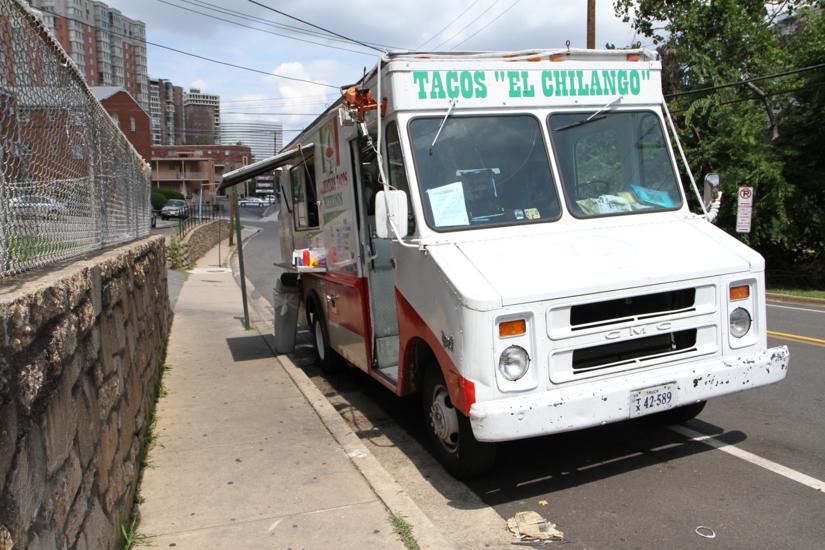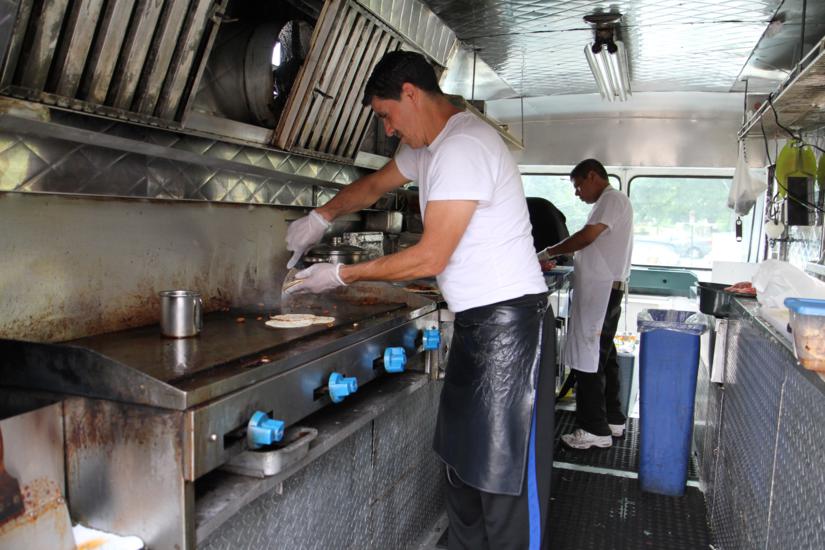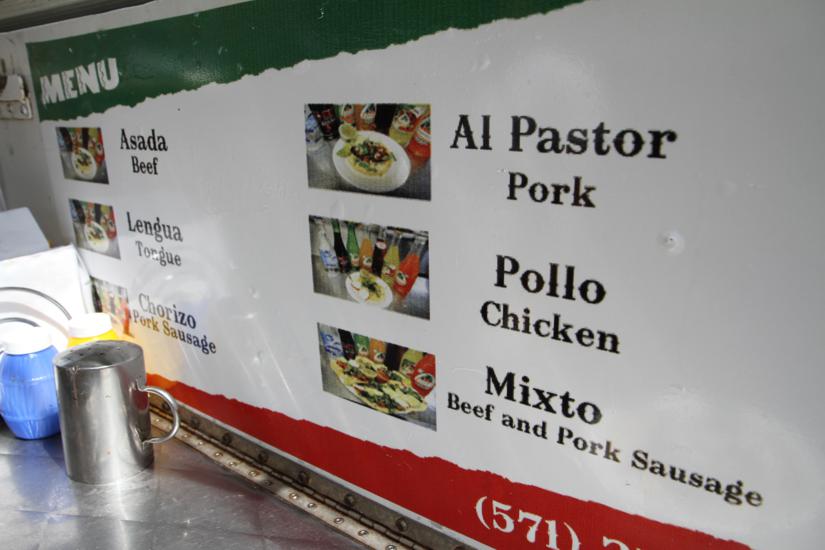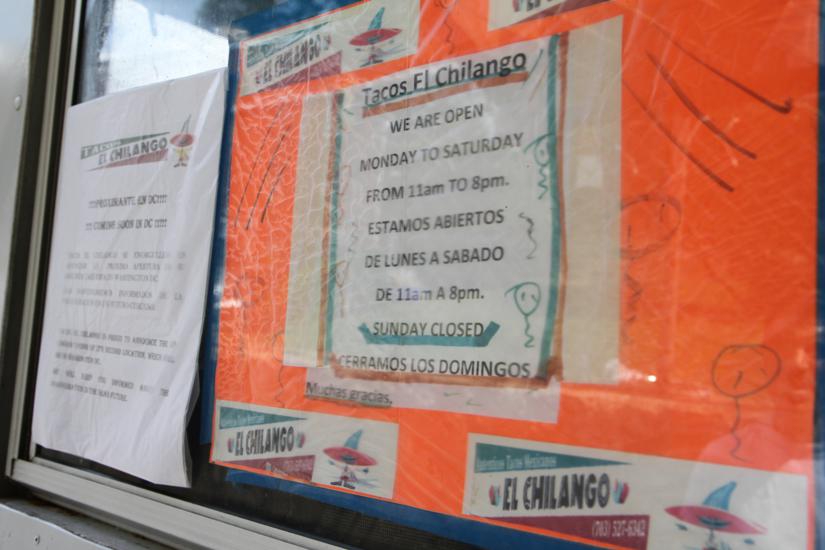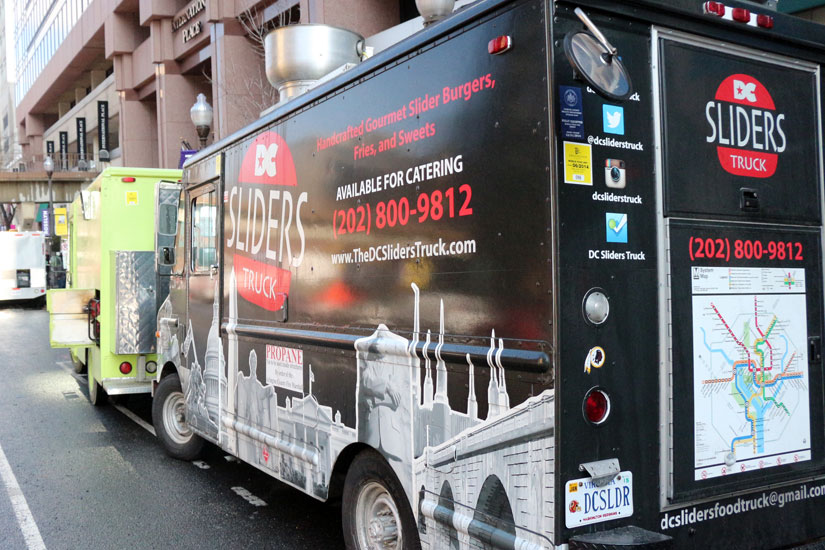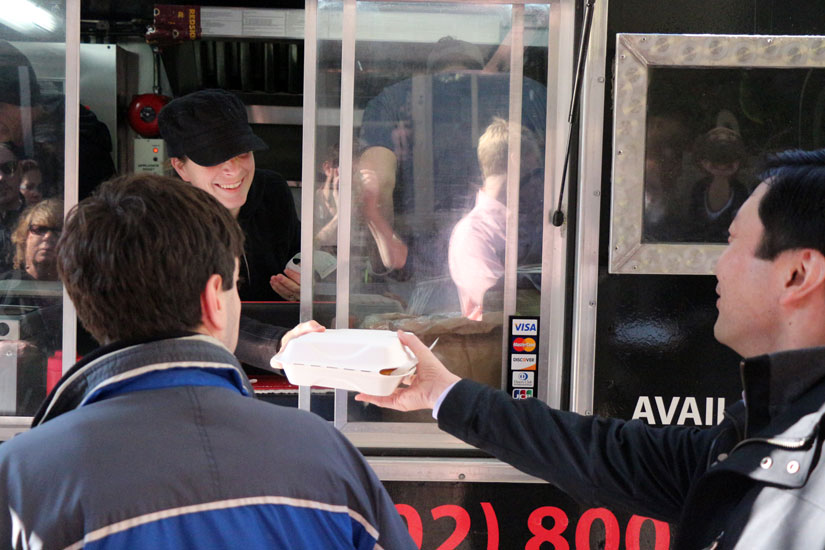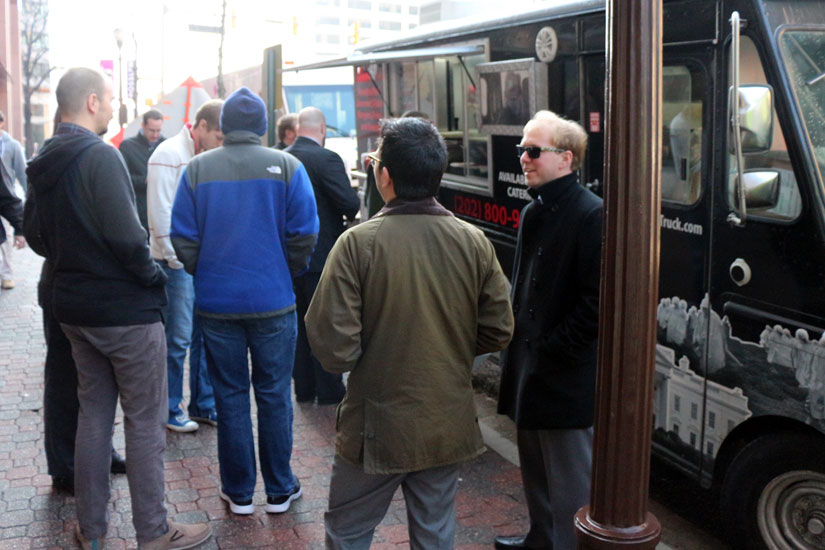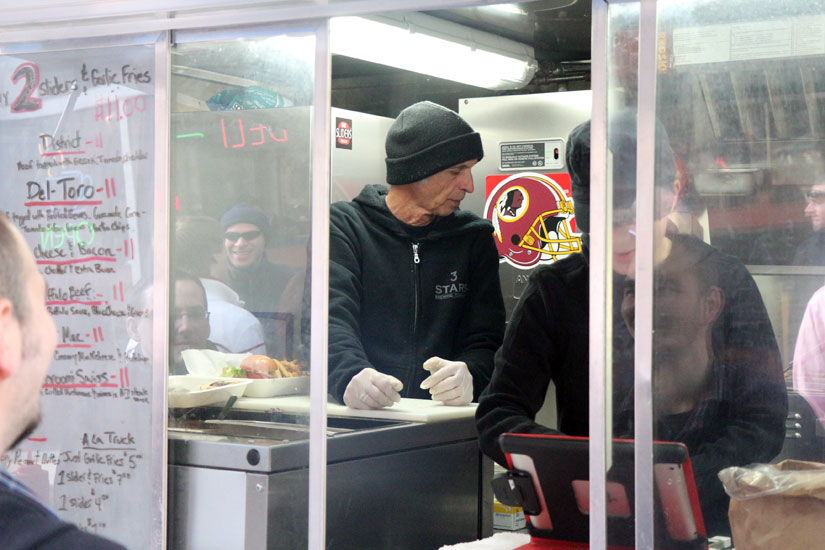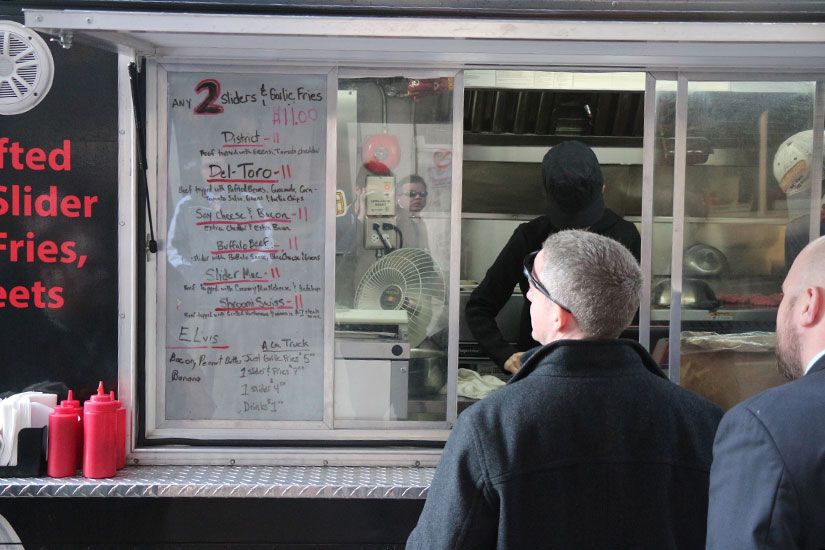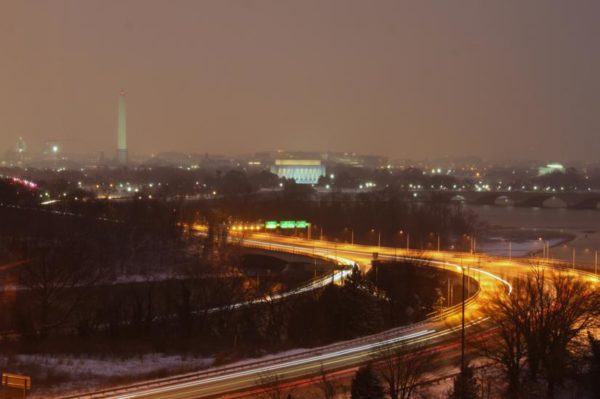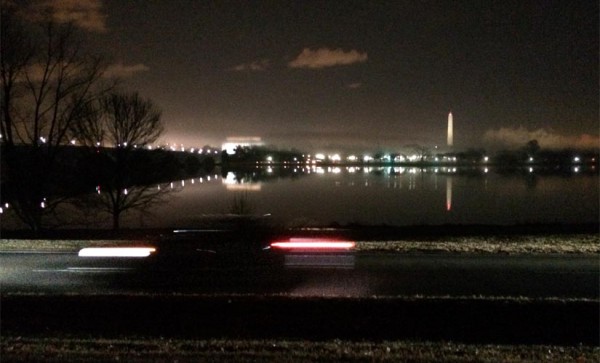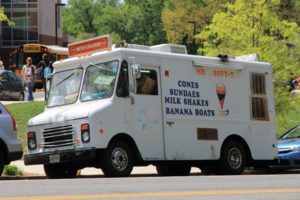A minor parking mishap attracted a crowd of restaurant owners in Courthouse yesterday.
Just before lunchtime, the “KBBQ Taco Box 2” food truck accidentally struck the front bumper of a parked car on the 2000 block of Wilson Blvd, as the truck was trying to squeeze into a tight parallel parking space. There was no damage evident — but police were called and a citation issued, as a small crowd of restaurant owners and mangers gathered.
As it turns out, the car belonged to a delivery driver for the Afghan Kabob House across the street, and this was the latest skirmish in an ongoing battle between brick-and-mortar restaurants and food trucks in Courthouse.
The war started last month with the emergence of an unlikely leader on the restaurant side. Bar Concepts, a restaurant consulting company, had been brought in to operate the back bar area of the recently reopened Summers Restaurant. Though Summers is not exactly known as a haven for Courthouse office dwellers seeking a quick grab-and-go bite to eat, Alan Beal, COO of Bar Concepts, zeroed in on food trucks — at least those that parked along Wilson and Clarendon Blvds — as the enemy of local restaurants.
Beal swiftly organized a coalition of about a dozen Courthouse area restaurants who say that the trucks “are running amok” and having “a serious impact on these brick and mortar restaurants” by parking directly in front of their establishments. The collective effort was on display Thursday as owners took turns complaining about parking enforcement to police.
Food trucks, they said, were reserving precious street parking spots in front of restaurants by having workers park cars on the street as early as 6:00 a.m. Some weren’t even feeding the meter, they said.
There’s nothing illegal about reserving street parking spaces in such a manner, the cops said, though they did encourage the owners to call when they did spot a violation like an expired meter. There is also a two hour limit on parking, which is enforced, but there’s a loophole: trucks can simply pull into into another open space after two hours, provided it’s at least 25 feet away from their existing parking space.
With little recourse other than calling in the meter maids, the owners seemed to agree to double down on an unofficial group tactic: encouraging employees to park on the street, thus taking away available parking spaces from the trucks. One owner could be heard telling several employees to be sure to park on the street during their shifts. Another ran across the busy four-lane road when a spot opened up, driving his Mercedes from a small private lot behind his restaurant, making a U-turn and pulling into the open spot, thus boxing out the food truck hoard.
Beal — who was in D.C. during the fender bender fracas — insists that he doesn’t oppose food trucks, only their parking choices. He said trucks park directly in front of businesses, billowing smoke, creating crowds that block the sidewalk and taking away customers. He has been documenting the woes on a YouTube channel.
“No one opposes food trucks, they’re good for consumers and good for the economy,” he said via phone. “The problem is where they’re parked.”
Purposely blocking parking spots, for hours on end, only hurts restaurants by keeping the spots from potential customers, according to Beal. “It is kind of unethical,” he said of food trucks, or anyone else for that matter, reserving street parking spots for commercial gain.
Beal said he has been having constructive conversations with the county about solutions that could work for both restaurants and food trucks. That potential solution — which had until then not been revealed to the media — is creating and enforcing specific areas for food trucks to park in a given area.
Cara O’Donnell, spokeswoman for Arlington Economic Development, said the county is hoping to implement a “street vending zone” pilot program in Rosslyn within a few weeks.


